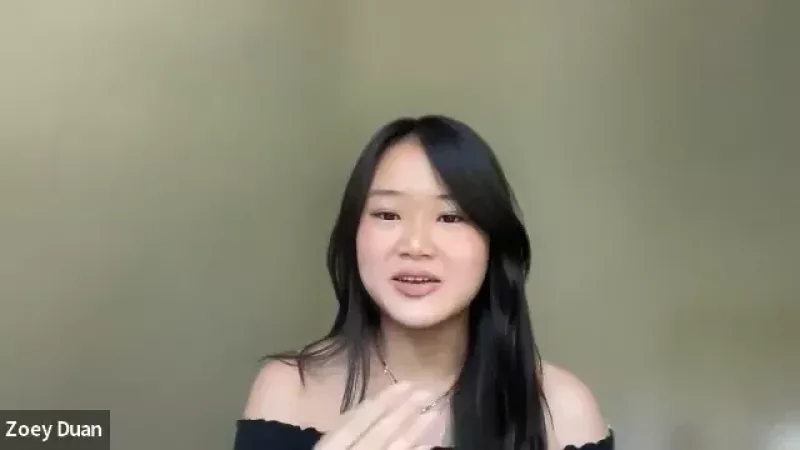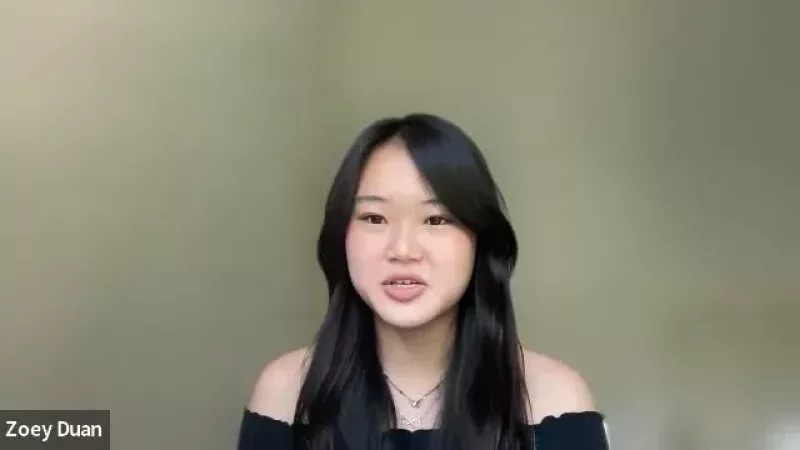Student Spotlight: Preparing Students for College and Career
Students, teachers, leaders, and families acknowledge the need to prepare young people for the evolving landscape of post-secondary education and an increasingly complex and global world of work. Consider this, from Asia Society: “Our lives are going global…Technology is both an accelerator and a critical facet of this increasing interconnectedness…As a result of this new connectivity, our high school graduates will need to be far more knowledgeable and curious about world regions and global issues…Their economic livelihood and opportunities for career growth depend on it, as will their ability to be successful as citizens and leaders in the 21st century global community. Our students must emerge from schools college-ready and globally competent. They will need to be able to think beyond our borders—to compete, connect, and cooperate with their generation around the world.”
I recently had the opportunity to speak with Zoey Duan, a former GOA student, about her experience taking a GOA course, Neuropsychology, during her first semester of her junior year of high school. Zoey is a 2022 graduate of Punahou School, and, this fall, she will attend Yale University, majoring in psychology with a specific track in neuroscience. Zoey offered her reflections on what she learned from taking a GOA course and how she feels the experience prepared her for college.
Creating Global Connections
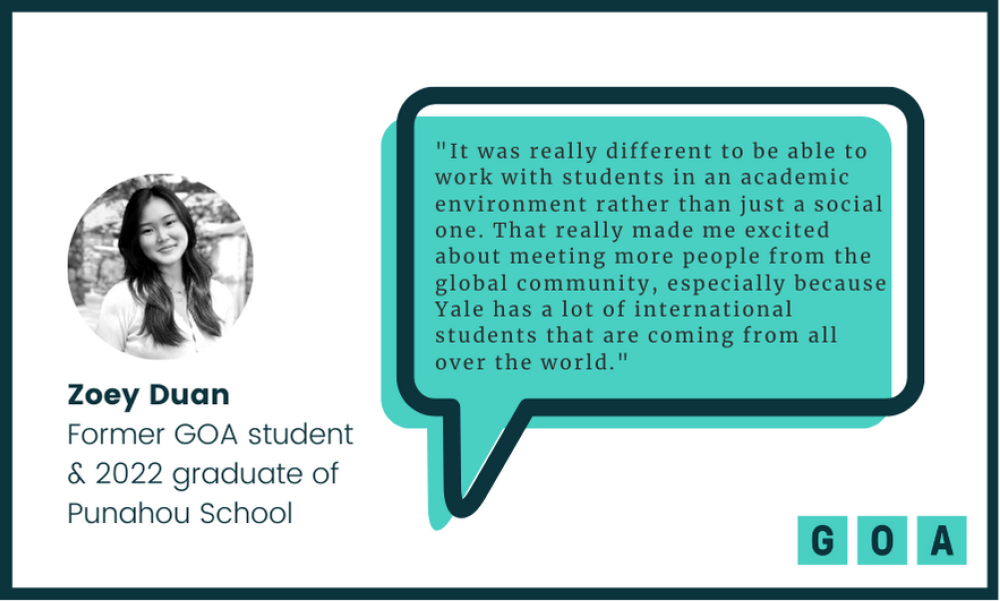
Students in GOA courses often join because of a desire to learn from and with others who don’t share their physical location and to experience a global community. Zoey expressed the importance of global connections in her Neuropsychology course: “It was great to be able to interact with a global community…I was able to talk to [other students] and [we] shared our own perspectives on this very interdisciplinary field and also work together on projects that we ourselves had to initiate.”
GOA courses are organized to encourage collaboration and communication, which foster a global connection. Zoey expressed appreciation for the unique learning environment and the ways in which she interacted with other students in a global community. Zoey said students were collaborating together across time zones on real world projects inside the course: “It was really different to be able to work with students in an academic environment rather than just a social one. That really made me excited about meeting more people from the global community, especially because Yale has a lot of international students that are coming from all over the world. I think GOA really helped me develop the communication skills that I currently have so that I can really better connect with people.”
Learning through Interests
Exploring New Interests and Developing New Skills
Zoey Duan, Former GOA student & 2022 graduate of Punahou School
Interest-based learning is an instructional approach that allows students to explore their interests as a means of acquiring knowledge and skills. This has been shown to be more motivating for students, and it can lead to deeper and longer-lasting learning experiences. In A Blueprint for Interest-Based Learning (ACSD), the authors write that there are benefits to learning through interests, including increasing student voice and choice and creating a joyful learning environment. A study by researcher David Yeager also found that academic persistence and student interest were linked. High school students who connected their academic work to their interests were more likely to persist even when academic work was either challenging or boring. These same students went on to finish college at significantly higher rates.
Similarly, Zoey offered that learning through her interests impacted her decision to major in psychology with a specific track in neuroscience at Yale: "[GOA] did help me direct my interests, especially at a critical time in my high school career…Taking the neuropsychology course really helped me develop this interest because I was able to explore the different fields of neuropsychology and how that might be able to have an impact on the communities around me."
Zoey went on to add that a benefit of GOA is the expansion of the course catalog beyond what was offered at her school: "Neuropsychology was definitely not a course that was offered at my school because it's a little bit niche, and so it was really amazing to be able to have the experience in high school before going to college."
Building Transferable Skills
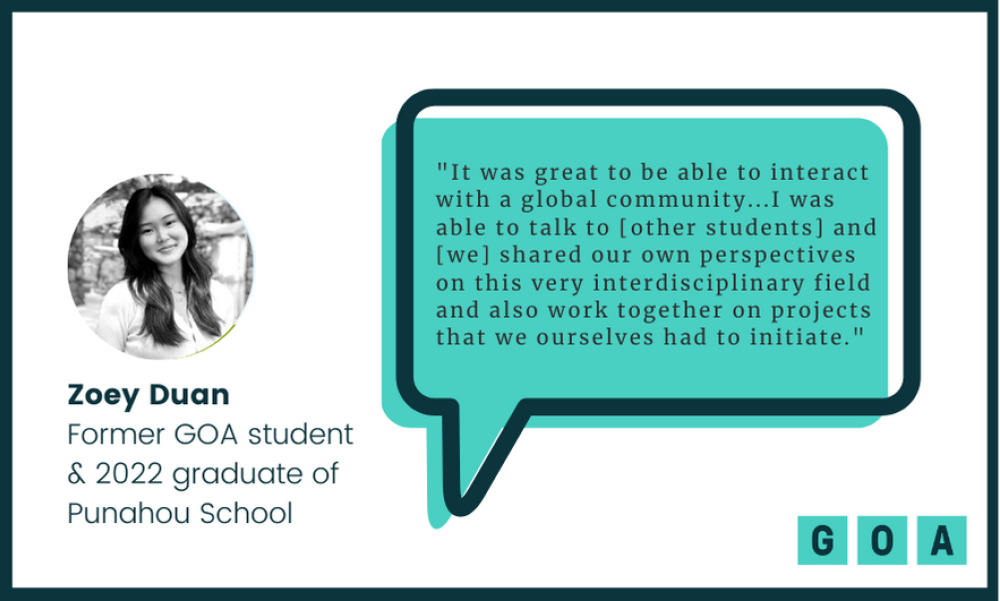
An American Institute for Research (AIR) study, Does Deeper Learning Improve Student Outcomes?, found that academic content in and of itself is not enough to help students fully engage in the 21st century workplace. Their research suggests that the best approach may in fact be coupling content with skill development through deeper learning. Deeper learning entails a deeper understanding of core academic content, the ability to apply that understanding to novel problems and situations, and the development of a range of competencies and soft skills. It’s a “Yes, and…” approach to content in the classroom. It’s this type of approach that Zoey cited as how GOA has helped prepare her for college by helping her build transferable skills.
At GOA, we have our own set of student competencies that are aligned with courses in our student program. The image below describes GOA’s six core competencies we help students to develop in our courses. These six core competencies are transferable skills that students can build in order to extend what has been learned in one context to another. Students demonstrate evidence of learning these competencies in a GOA course, learning transferable skills that can be applied in other contexts.
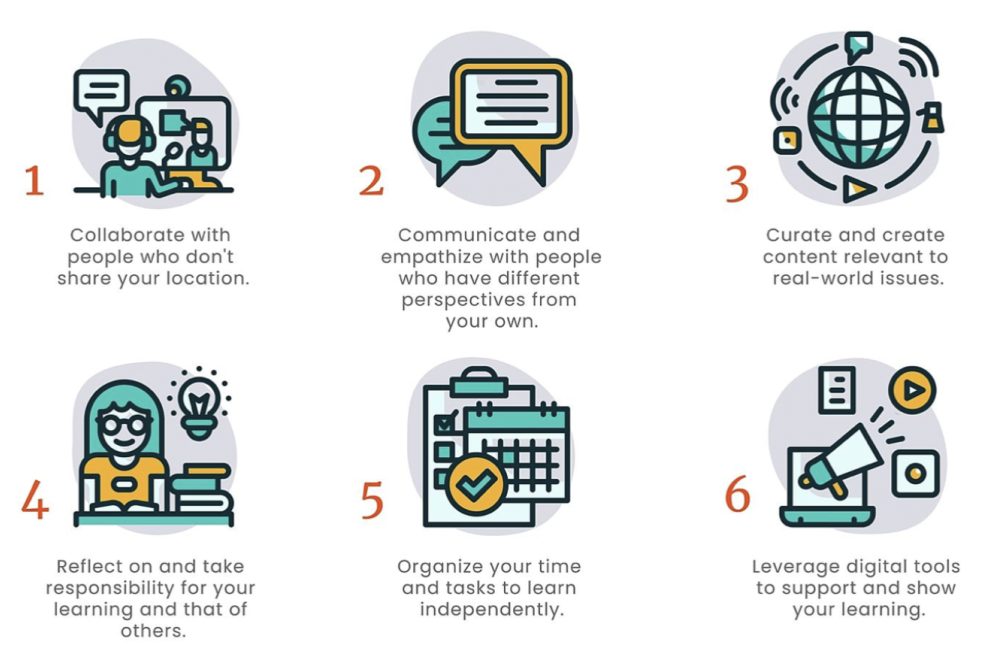
Zoey urged other students to join a GOA course: "You'll be able to learn all of the different skills you didn't have before...Once you have [a GOA course experience] in your high school career, you'll be so prepared for college. You'll be able to talk to all of these people. You'll be able to make new connections, even in a virtual setting." In addition to increased communication skills, Zoey cited her ability to conduct research online and hone her writing skills in an online setting as skills that she will continue to utilize, and hone further, in college.
Navigating New Learning Environments
Taking an online course in high school not only prepares students for college, it also helps them navigate what could be an entirely new learning environment, writes Jason Cummings, GOA Director of Student Programs, in Want to Empower Learners? Ask Yourself These Three Questions: “How much ambiguity is healthy for your students as you push them from a compliance-oriented learning environment to one that empowers them to own the learning? For many courses…there is likely room to offer students more choice and more control over how they will demonstrate their learning.”
Immersing Self in a New Learning Environment
Zoey Duan, Former GOA student & 2022 graduate of Punahou School
Zoey appreciated learning how to navigate a new learning environment, one that contained some ambiguity, at least at first. She said that she had to be open-minded and comfortable with the uncomfortable, learning new online tools she had never used before. This was all part of the learning process for Zoey. She concluded that through her GOA course she was “able to direct my learning. This experience was impactful and will stay with me.”
For more, see:
- GOA's Student Program Course Catalog
- Student Spotlight: How to Build Three Essential Lifelong Skills
- An Introduction to Student Co-Designed Learning
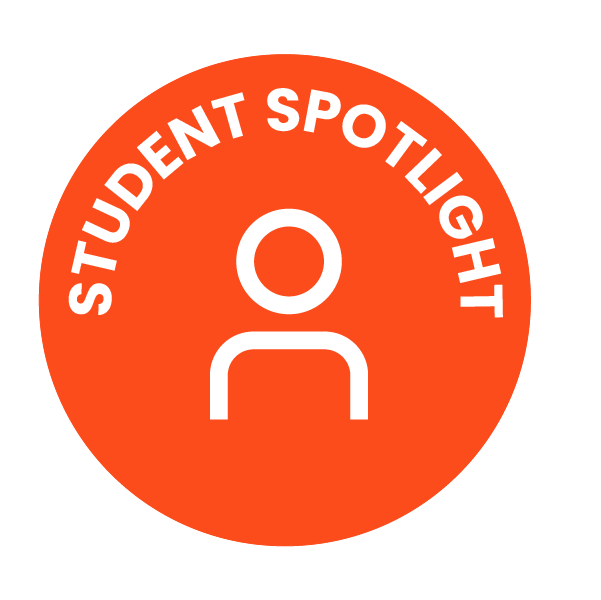
This post is part of our Student Spotlight series, where we feature stories from students who take GOA courses. Are you a current or former GOA student who would like to be interviewed for a Student Spotlight article? Or, are you an educator who has a recommendation for a student for us to feature? Email us at hello@globalonlineacademy.org with the subject title “Student Spotlight.”
GOA serves students, teachers, and leaders and is comprised of member schools from around the world, including independent, international, charter, and public schools. Learn more about Becoming a Member. Our professional learning opportunities are open to any educator or school team. Follow us on LinkedIn and Twitter. To stay up to date on GOA learning opportunities, sign up for our newsletter.

